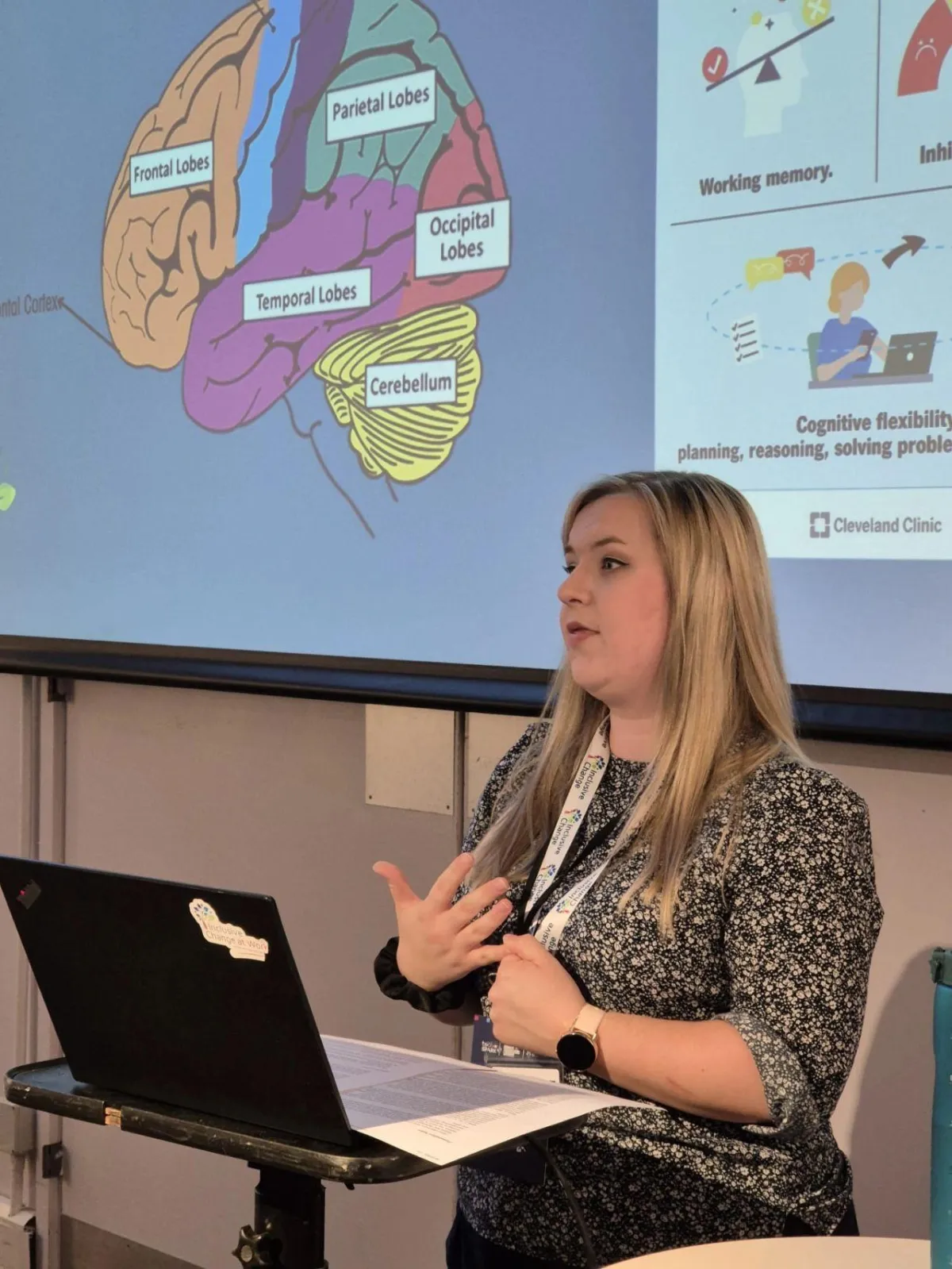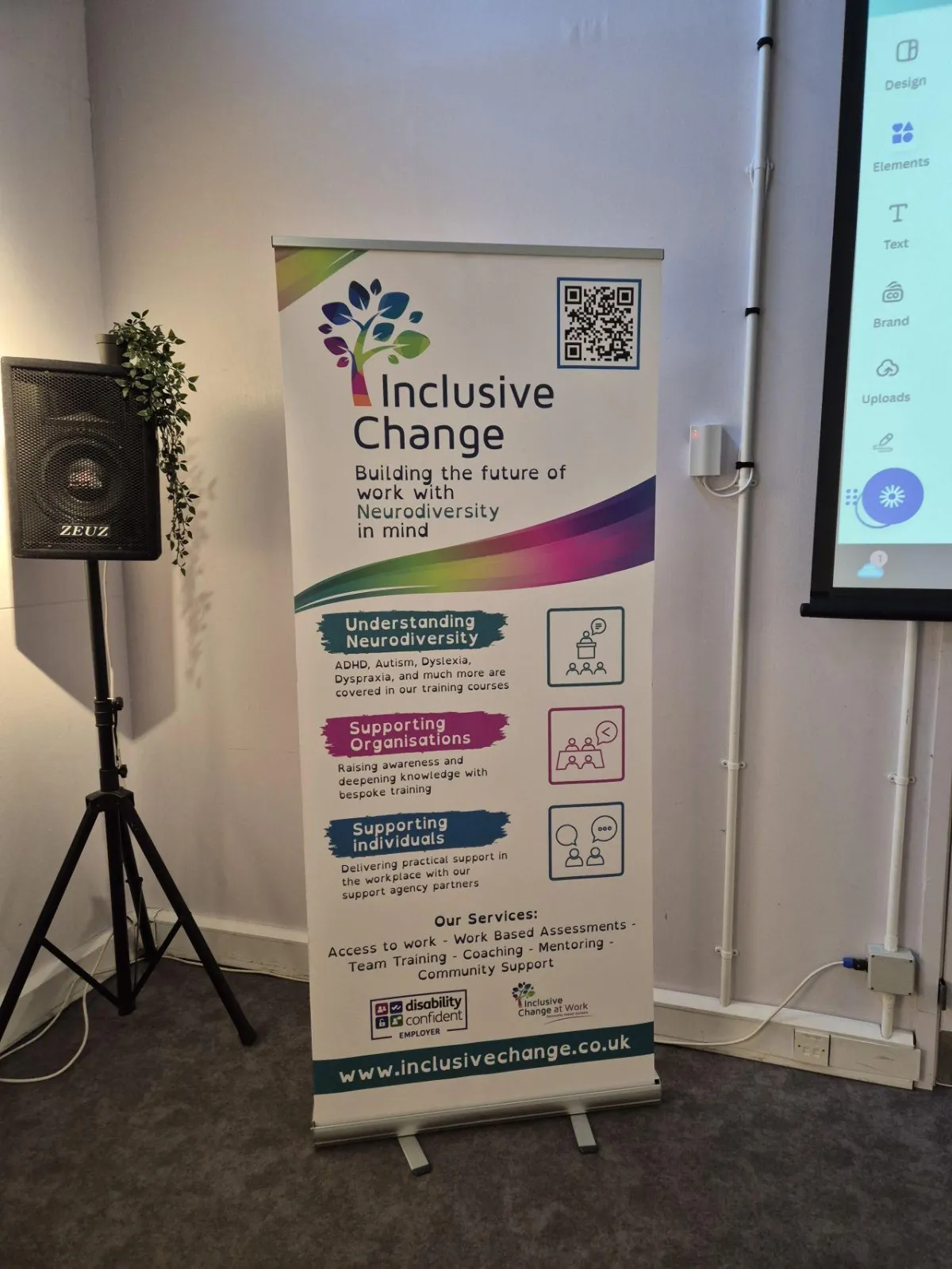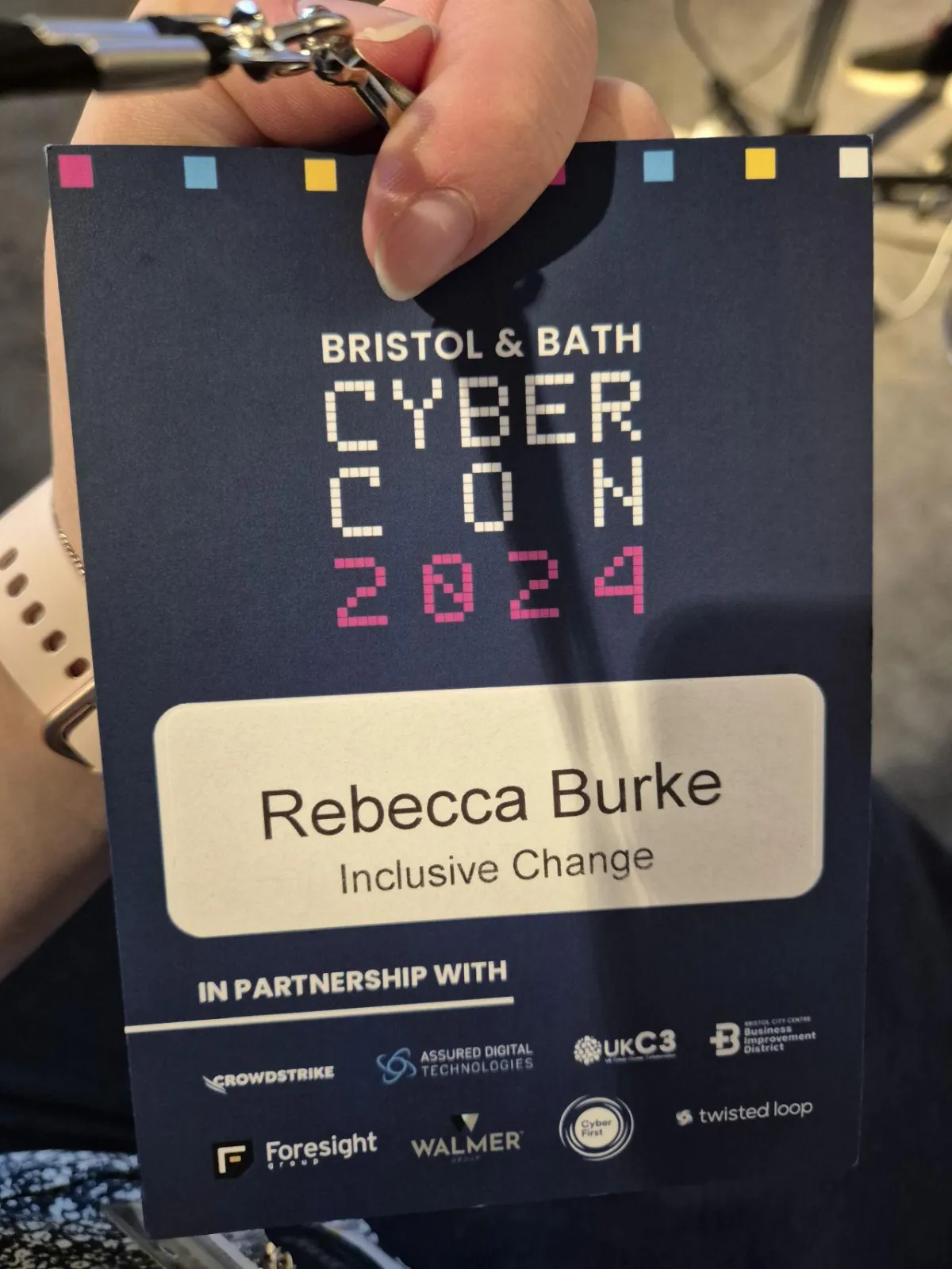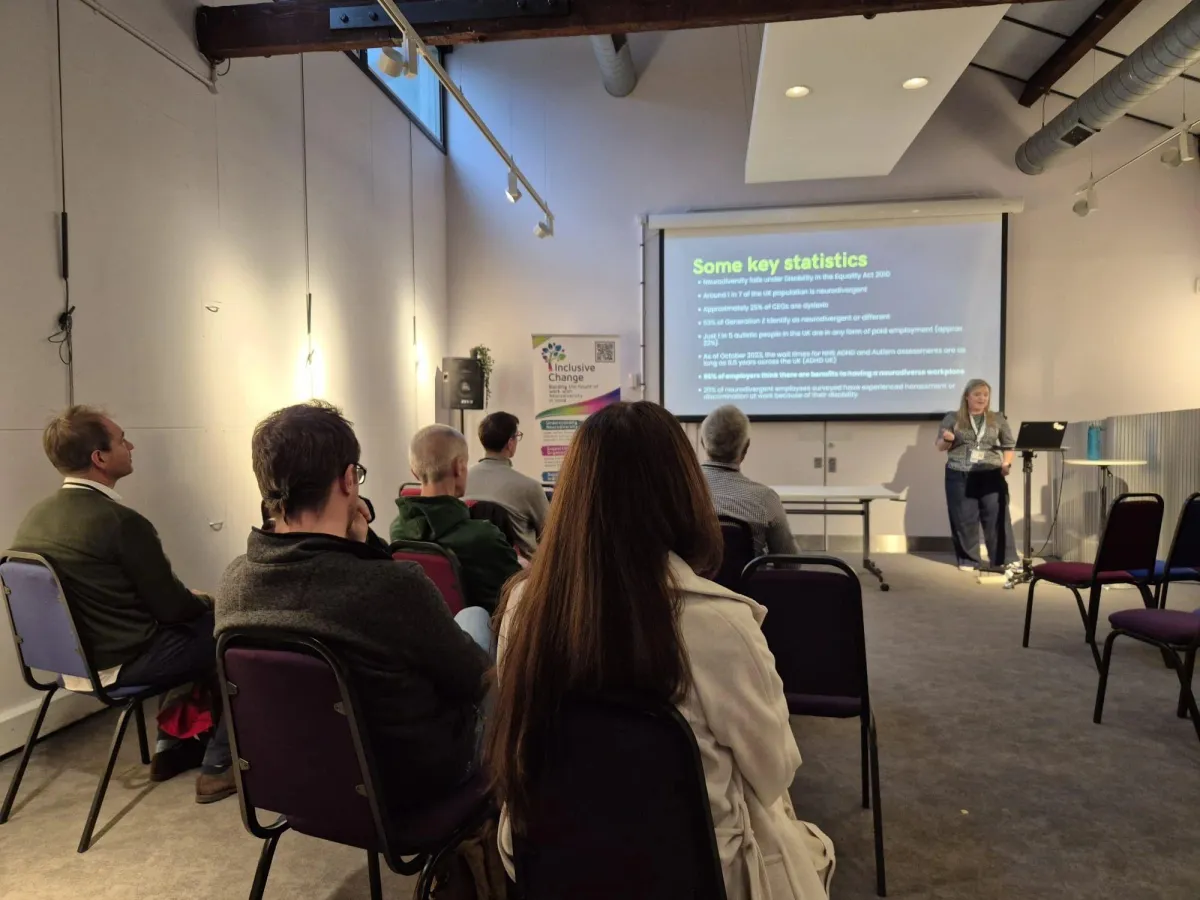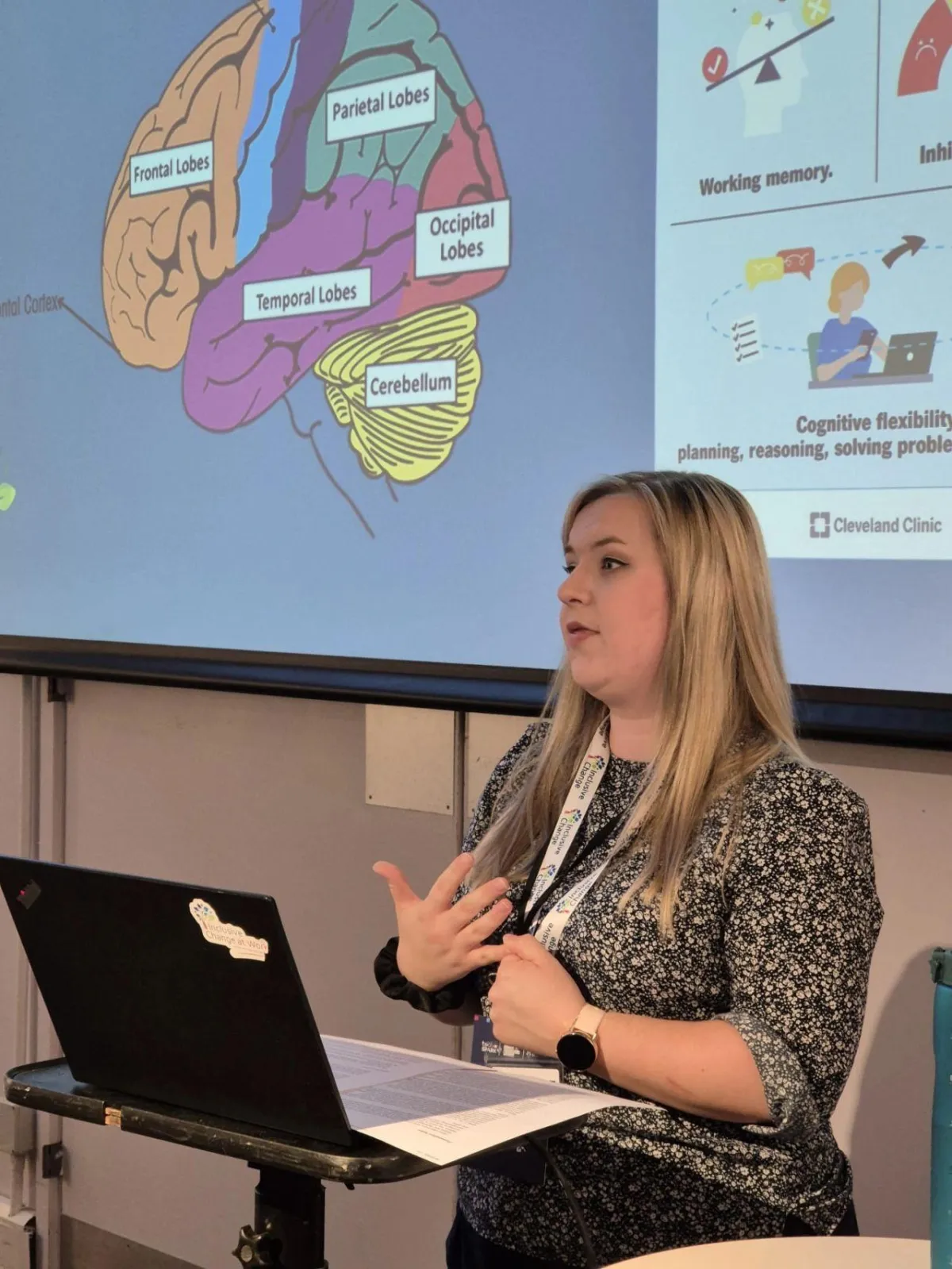
Becca Burke
Speaker
Empowering Neurodiversity in the workplace
Hi, I am Becca!
I'm Becca, a passionate advocate for neurodiversity and understanding ADHD in the workplace. Living with ADHD (combined presentation) myself, I bring a unique blend of professional experiences and personal insights to the conversation about creating inclusive, productive work environments. Equity in the workplace is especially important for us as neurodiverse folk; if given the adjustments and support we need, we can not only survive, but thrive at work.
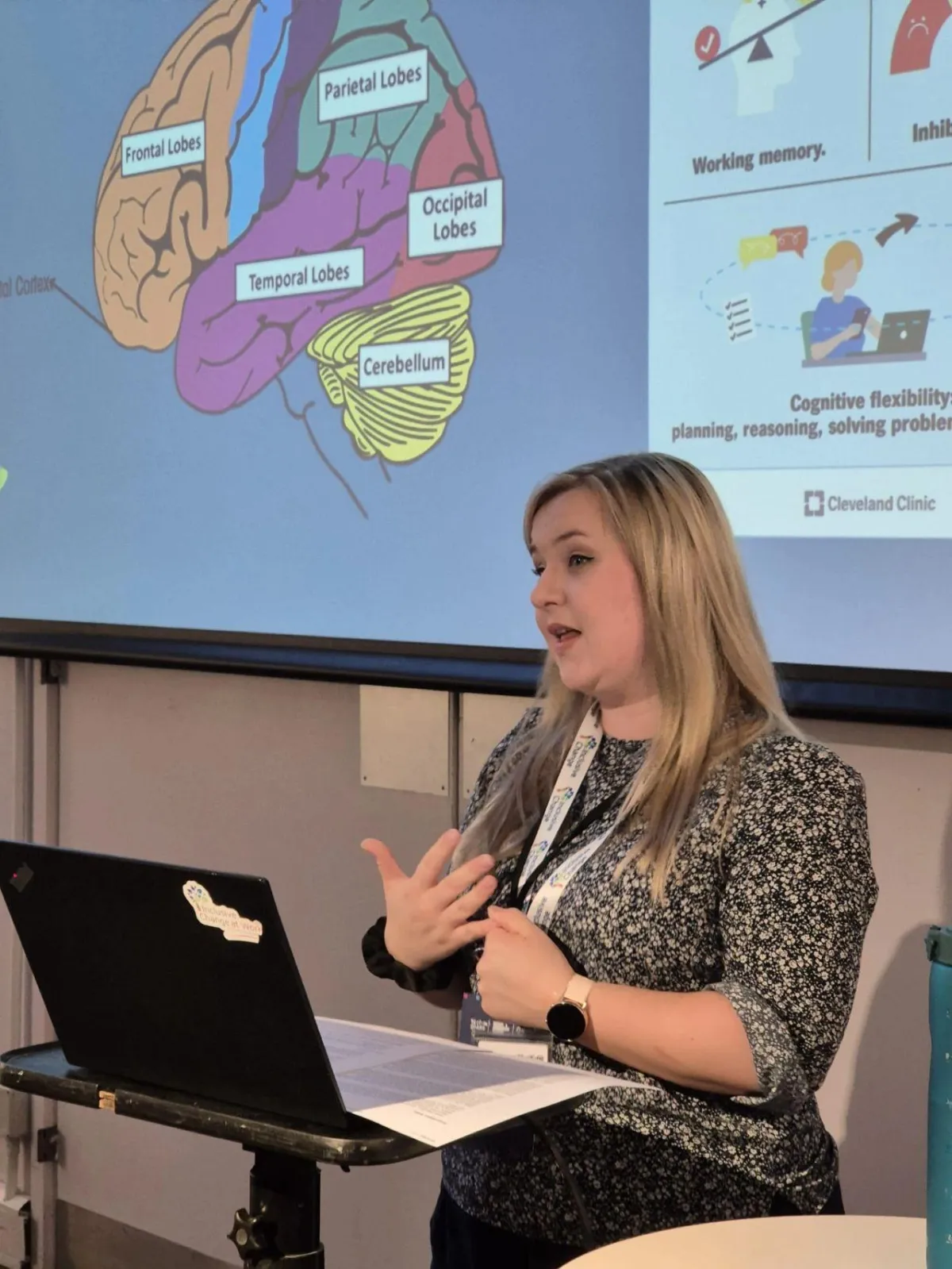
My professional journey
My career path has been varied, in true ADHD style! From my early days in customer relations to roles in sales and account management, I've always excelled in building relationships and understanding people's needs. My time at a FTSE 100 bank gave me a solid foundation for navigating large organisations and the politics of the office environment, and I then had to adapt quickly to the drastic changes of the Covid-19 Pandemic Lockdown. It was during this time, recognising the disruption to my routine, hyperfocusing on work outside of my core hours, and my inability to finish any tasks to completion, that I realised something wasn’t working for my brain.
Throughout my career, I’ve recognised that I was struggling, but never quite understood why. I saw so much of my own journey in the struggles I heard from other neurodiverse people, and I wanted to find a way that I could tangibly make a difference. After my own diagnosis in early 2024, I was inspired to become an ADHD Coach with Leanne Maskell's ADHD Works, and led to me being headhunted for Inclusive Change Ltd as Support Specialist.
My Areas of Expertise
- ADHD awareness and management strategies
- Education and training around ADHD for businesses
- Job coaching neurodivergent clients at work
- Rejection Sensitive Dysphoria awareness/training
- Business process improvement for neurodiverse workforce support
- Working with clients as a neurodiversity educated Virtual Assistant
- Neurodivergent talent recruitment and retention
- ADHD Works Level 1 Coach
Popular Discussion Topics
- Rejection Sensitive Dysphoria (RSD) & ADHD
- ADHD and the menopause
- ADHD screening in prisons
- ADHD and neurodiversity co-occuring traits
- ADHD celebrities
- Current research development
Living with ADHD
- Physiological difference in the brain
- ADHD facts and figures
- Common misconceptions
- Lived experience
- Interactive Q&A
ADHD in the Workplace
- Common challenges and strategies
- Strengths ADHDers bring to the workplace
- Challenges for us in the workplace
- Helpful strategies
- Reasonable Adjustments
- Equality Act 2010 protection
My Speaking Style
I pride myself on being engaging, insightful, and empathetic. My presentations blend personal anecdotes, research-based strategies, and interactive elements that leave audiences both informed and inspired. I like making complex topics accessible, and providing concrete, implementable solutions to common workplace challenges.
Why Choose Me?
At Inclusive Change, we understand your ‘Why,’ and meet you where you are on your journey as a business. Whether you're looking to educate your HR or leadership teams, or provide valuable insights to your entire organisation, I can help. I don’t believe that we as neurodivergent people need to change who we are to succeed; with the right support, education and awareness, we can be ourselves without compromise.
Work with me
Ready to transform your understanding of ADHD in the workplace?
Would you like me to run a workshop for you?
Get in touch using my calendar below.
Read my blog here: https://inclusivechange.co.uk/blog/b/adhd-and-me
Read more
The blog
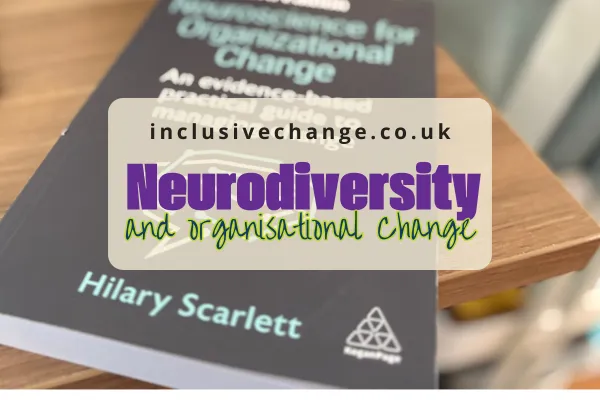
Technology, Empathy Mapping, and Profiling Tools: Designing Change That Works for Every Brain
Technology, Empathy Mapping, and Profiling Tools: Designing Change That Works for Every Brain
When organisations undergo change, most energy goes into managing systems, structures, and timelines. But if we want change that is truly inclusive and sustainable, we must also pay close attention to the tools we use and the perspectives we prioritise.
In this third instalment of our neuroinclusive change series, we explore three practical strategies to support neurodivergent individuals through change: using technology to reduce friction, applying empathy mapping to understand experience, and adopting profiling tools to unlock team strengths.
Technology as a Support System
For many neurodivergent individuals, technology can be a lifeline. People with ADHD, for example, often struggle with executive function tasks like planning, prioritising, and completing routines. AI-powered tools can help with structuring emails, summarising information, or managing tasks.
For those with communication differences, tools that interpret or translate tone, assist with drafting clear responses, or summarise long messages can be transformative. These technologies are not just convenience tools, they are accessibility tools.
Organisations that recognise the assistive value of AI and other digital supports can build systems that work better for everyone. Consider including neurodivergent staff in testing and reviewing these tools during change to ensure their functionality and impact are properly understood.
Using Empathy Maps to Plan Better Change
Empathy mapping is a human-centred approach to change design. It involves creating fictional personas that represent different employee experiences, then asking key questions about each:
What are they thinking and feeling?
What are they seeing, hearing, or saying?
What are their frustrations and fears?
What do they stand to gain or lose?
When we use empathy maps in change planning, we stop designing for the average and start designing for real people. The power of this approach grows when neurodivergent voices are included in creating or reviewing these maps.
Rather than guessing how someone with sensory sensitivities might respond to a new open-plan office, why not invite a neurodivergent colleague to contribute their insight directly? This is how inclusive design becomes not just more ethical, but more effective.
Profiling Tools to Understand Spiky Profiles
Most team performance tools assume a balanced or rounded skill set. Neurodivergent individuals, however, often have what we call a “spiky profile” — areas of high ability alongside areas of challenge. Traditional performance metrics rarely capture this.
By using profiling tools that map these spikes at the individual or team level, managers can make more informed decisions:
Who needs support with admin, but excels in strategy?
Who might be quiet in meetings but produce outstanding written insights?
Where are the hidden strengths in the team that are not being utilised?
Understanding and respecting these profiles can help to redistribute tasks more fairly and play to strengths during times of change. This is also a key foundation of building high-performing, psychologically safe teams.
Connecting Practice to Neuroscience
These strategies are not just practical — they are backed by brain science. In Neuroscience for Organizational Change, Hilary Scarlett explains how our brains react to threat, uncertainty, and overload. The tools we’ve discussed — supportive tech, empathy-led planning, and individualised profiling — help reduce threat and increase predictability and autonomy, key factors in brain-friendly change.
For leaders serious about embedding these principles, this book is an essential companion. It offers accessible insights into how to lead change in a way that supports cognitive diversity and mental wellbeing.
Visit Neuroscience for Organizational Change – Kogan Page and use code NEW20 for 20% off as a new customer.
Where to Next?
At Inclusive Change, we help organisations build toolkits, design change plans, and lead transformations that include all brains. From neurodivergent-led workshops to inclusive tech reviews, our work helps teams shift from compliance to genuine culture change.
Explore what we offer at inclusivechange.co.uk
Coming next: Psychological Safety and Managerial Accountability in Change
Change is not just about systems. It is about people. Let’s make sure no one gets left behind.
Some of the Companies Inclusive Change Have Worked With So Far


Column Header
Lorem ipsum dolor sit amet consecetuer lorem ipsum
Organically grow the holistic world view of disruptive innovation
At the end of the day, going forward, a new normal that has evolved
Column Header
Lorem ipsum dolor sit amet consecetuer lorem ipsum
Organically grow the holistic world view of disruptive innovation
At the end of the day, going forward, a new normal that has evolved
Column Header
Lorem ipsum dolor sit amet consecetuer lorem ipsum
Organically grow the holistic world view of disruptive innovation
At the end of the day, going forward, a new normal that has evolved
Inclusive Change Ltd
The Brightwell, Bradbury House
Wheatfield Drive
Bradley Stoke, Bristol
BS329DB
Copyright 2025 - Inclusive Change Ltd
Companies House: 12412464
VAT NO: 352 1564 17
ICO Reg: ZB081779
UK Register of Learning Providers: 10090652

